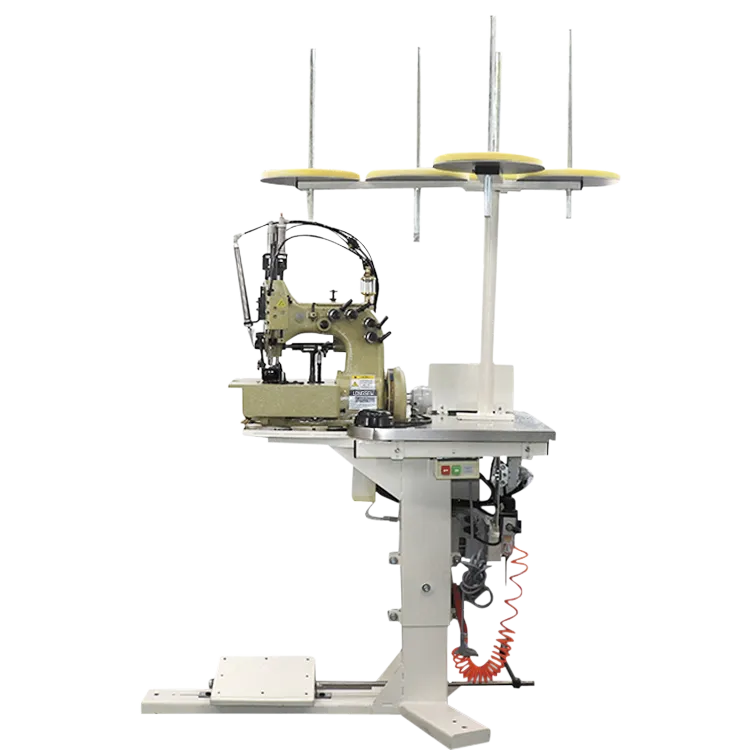Advanced CNC Stitching Technology for Precision Textile Production Solutions
CNC Stitching Machines Revolutionizing the Textile Industry
In recent years, the textile industry has experienced significant transformation, largely due to the advent of advanced technologies. Among these innovations, CNC (Computer Numerical Control) stitching machines have emerged as a game-changer. These machines not only enhance the efficiency of stitching processes but also improve the precision and quality of the final products. This article explores the principles, advantages, and applications of CNC stitching machines, highlighting their pivotal role in modern textile manufacturing.
Understanding CNC Stitching Machines
CNC stitching machines utilize computer programming to control the stitching process, allowing for intricate patterns and designs that would be extremely challenging to achieve manually. These machines are equipped with high-precision motors and automated cutting tools, enabling them to operate at high speeds while maintaining consistent quality. The computer interface allows operators to upload designs directly, which the machine interprets to execute the stitching with remarkable accuracy.
Advantages of CNC Stitching Machines
1. Precision and Accuracy One of the primary benefits of CNC stitching machines is their ability to produce highly precise stitches. The computer-controlled process minimizes human error, ensuring that each stitch is placed exactly where intended. This is particularly beneficial for complex designs that require a high level of detail.
2. Efficiency and Speed CNC stitching machines can operate continuously at high speeds, significantly reducing production time. This increased efficiency allows manufacturers to meet large orders with tight deadlines, a crucial factor in the fast-paced fashion industry.
3. Cost-effectiveness Although the initial investment in CNC technology may be higher than traditional machines, the long-term savings are substantial. The reduction in labor costs, coupled with minimized material waste due to accurate cutting and stitching, makes CNC machines a financially viable option for manufacturers.
4. Flexibility and Versatility CNC machines can be easily reprogrammed to handle various designs and materials. This flexibility enables manufacturers to adapt quickly to changing market trends and customer demands, producing customized products without significant downtime.
cnc stitching machine

5. Enhanced Quality Control The automated nature of CNC stitching machines allows for consistent quality assurance. With integrated sensors and feedback systems, these machines can detect and correct errors in real time, leading to higher quality and uniformity in the final products.
Applications of CNC Stitching Machines
CNC stitching machines are utilized in a wide range of applications across various sectors of the textile industry. Some notable uses include
- Fashion and Apparel Designers and manufacturers leverage CNC stitching machines to create intricate patterns, unique embroidery, and elaborate stitching effects that are often required in high-end fashion.
- Automotive Industry CNC stitching machines are employed in the production of automotive upholstery, where precision is critical to ensure the perfect fit and finish of seat covers, dashboards, and door panels.
- Home Textiles In the home textile sector, these machines are used for making curtains, upholstery, and decorative items, where intricate designs can enhance the aesthetic appeal of interiors.
- Industrial Textiles CNC sewing technology extends to industrial applications, including the production of durable textiles for workwear, safety gear, and other specialized textile products where quality and durability are paramount.
Conclusion
The introduction of CNC stitching machines has undeniably transformed the textile industry. With their ability to provide unprecedented levels of precision, speed, and versatility, these machines are redefining manufacturing standards. As the demand for high-quality, customized textile products continues to rise, the role of CNC technology is set to grow even further. By embracing these innovations, manufacturers can stay competitive in the ever-evolving landscape of the textile market, ultimately delivering superior products that meet the needs and expectations of consumers. The future of textile manufacturing lies in the seamless integration of technology and creativity, and CNC stitching machines are at the forefront of this revolution.
-
Industrial Cylinder Arm Sewing Machine: Revolutionizing Heavy-Duty SewingNewsJul.28,2025
-
Cylinder Arm Sewing Machine: Perfect for Special Sewing ApplicationsNewsJul.28,2025
-
Cylinder Bed Sewing Machine: Essential for Sewing Complex MaterialsNewsJul.28,2025
-
Heavy Duty Sewing Machine: The Essential Tool for Industrial ApplicationsNewsJul.28,2025
-
Computerized Pattern Sewing Machine: Revolutionizing Precision StitchingNewsJul.28,2025
-
Heavy Duty Industrial Sewing Machine: Power Meets PrecisionNewsJul.28,2025
-
Leather Sewing Machine: The Industrial Standard for Tough MaterialsNewsJul.18,2025





























